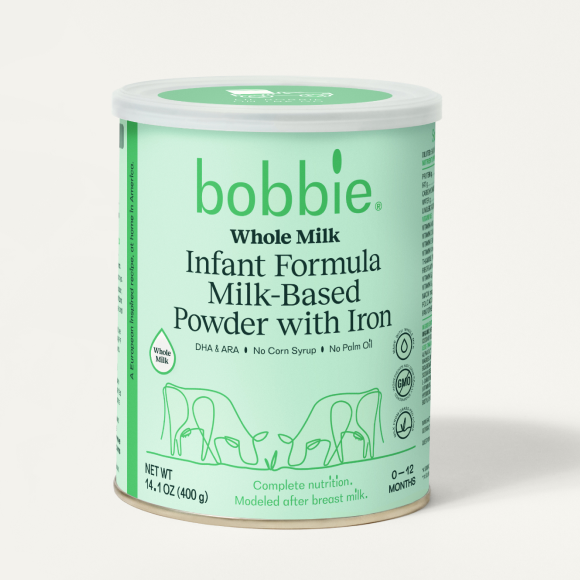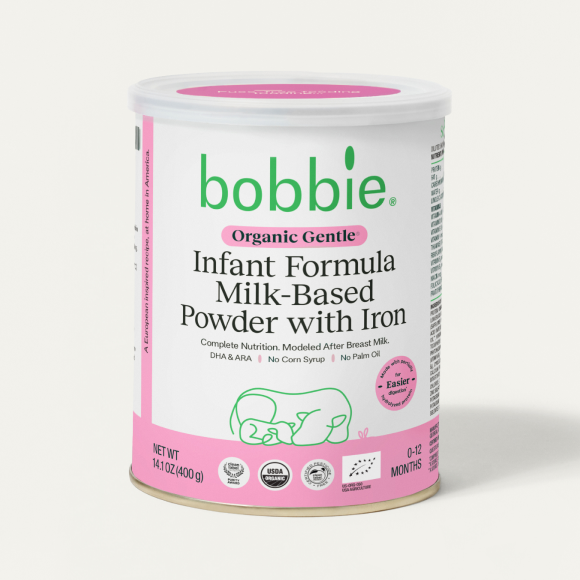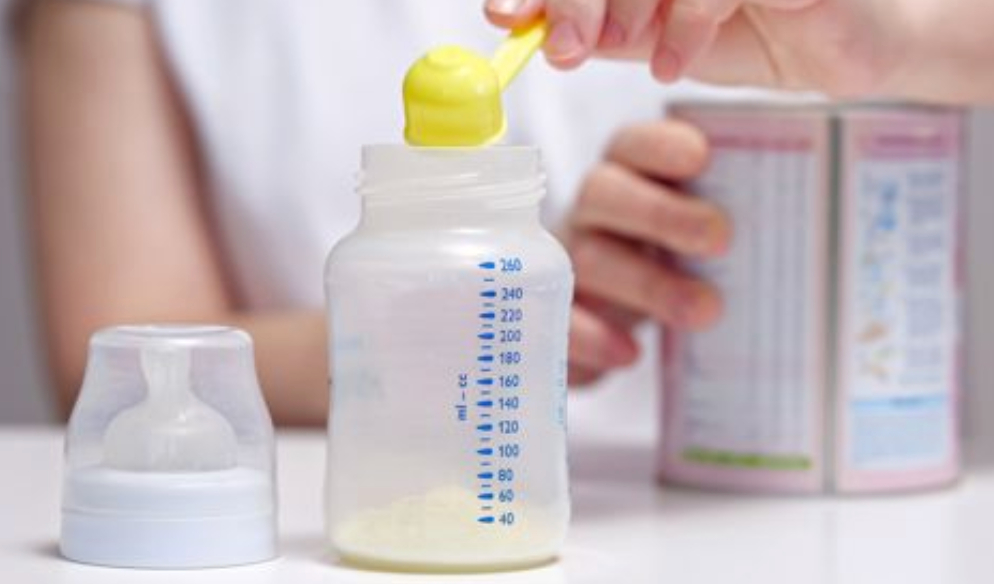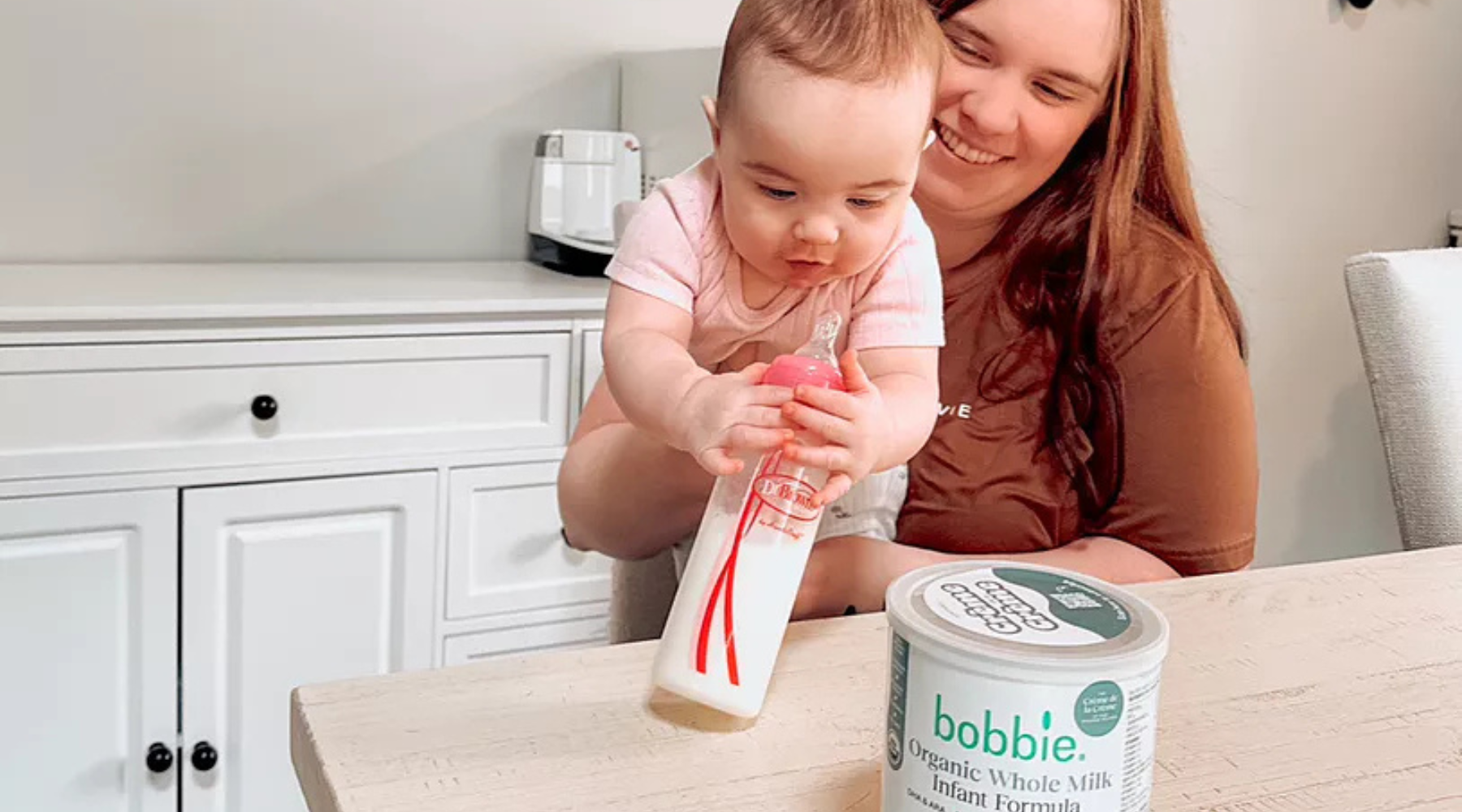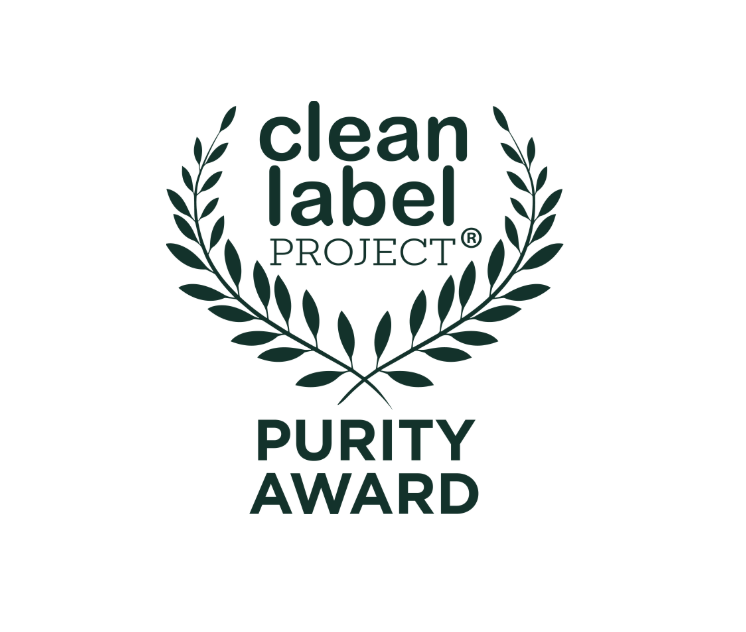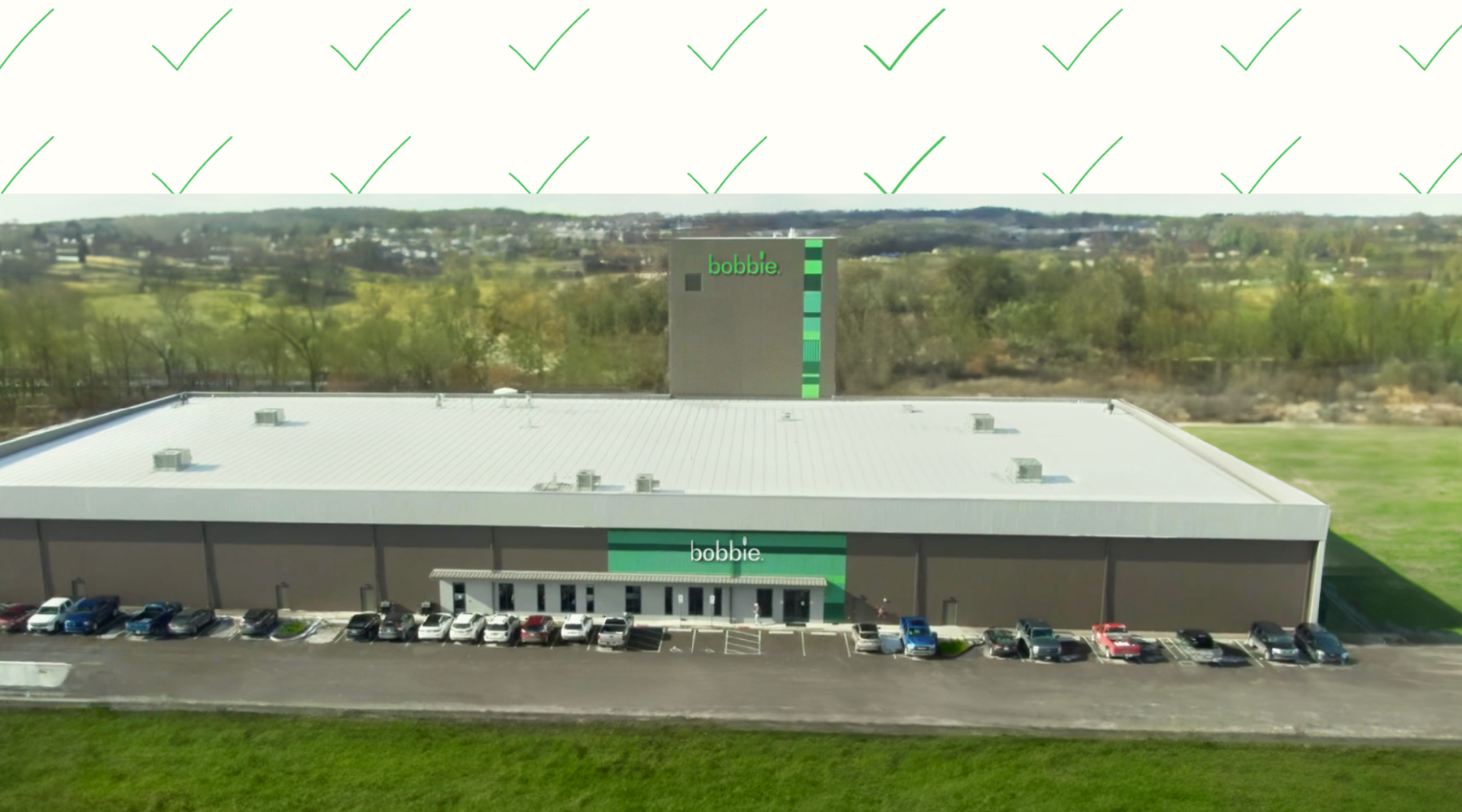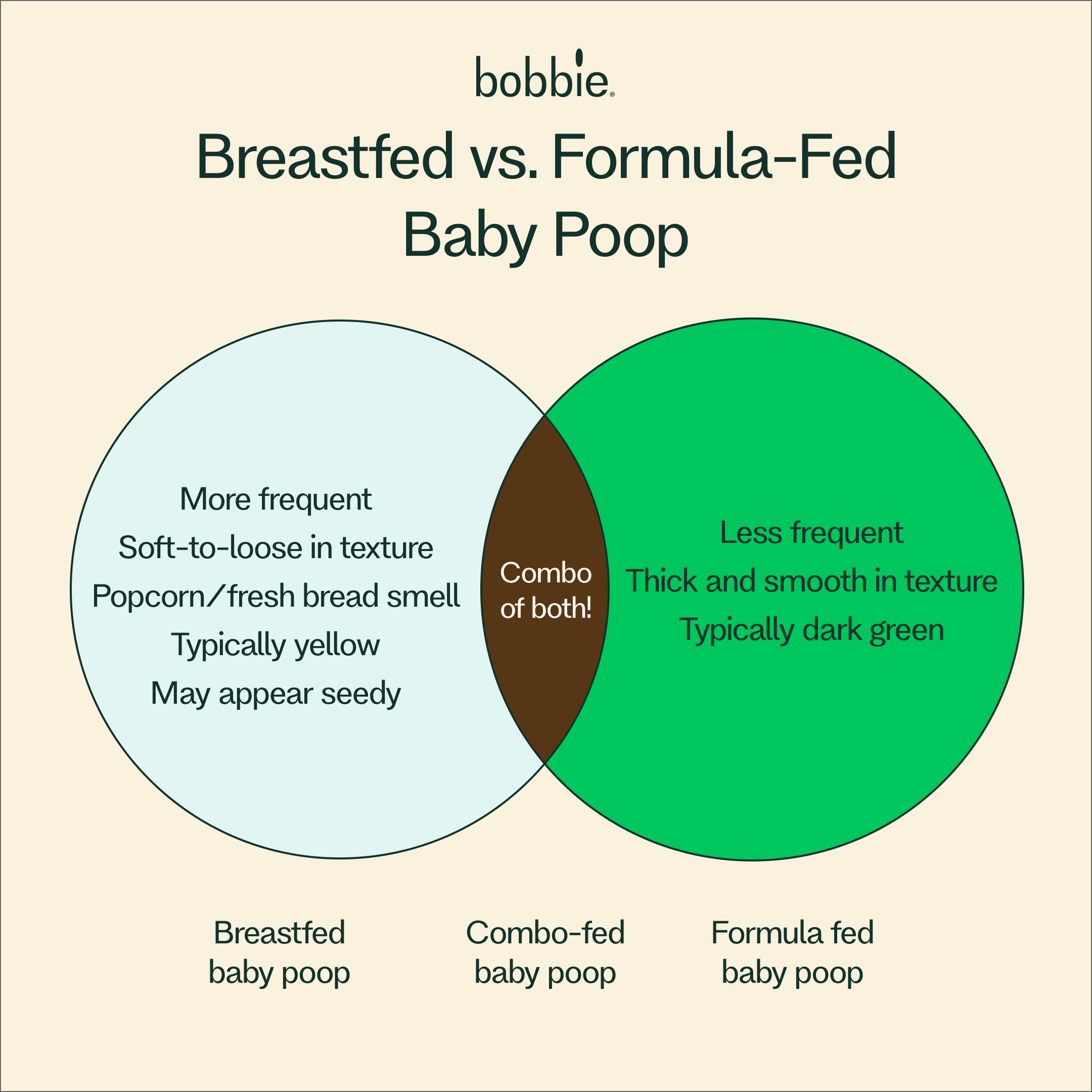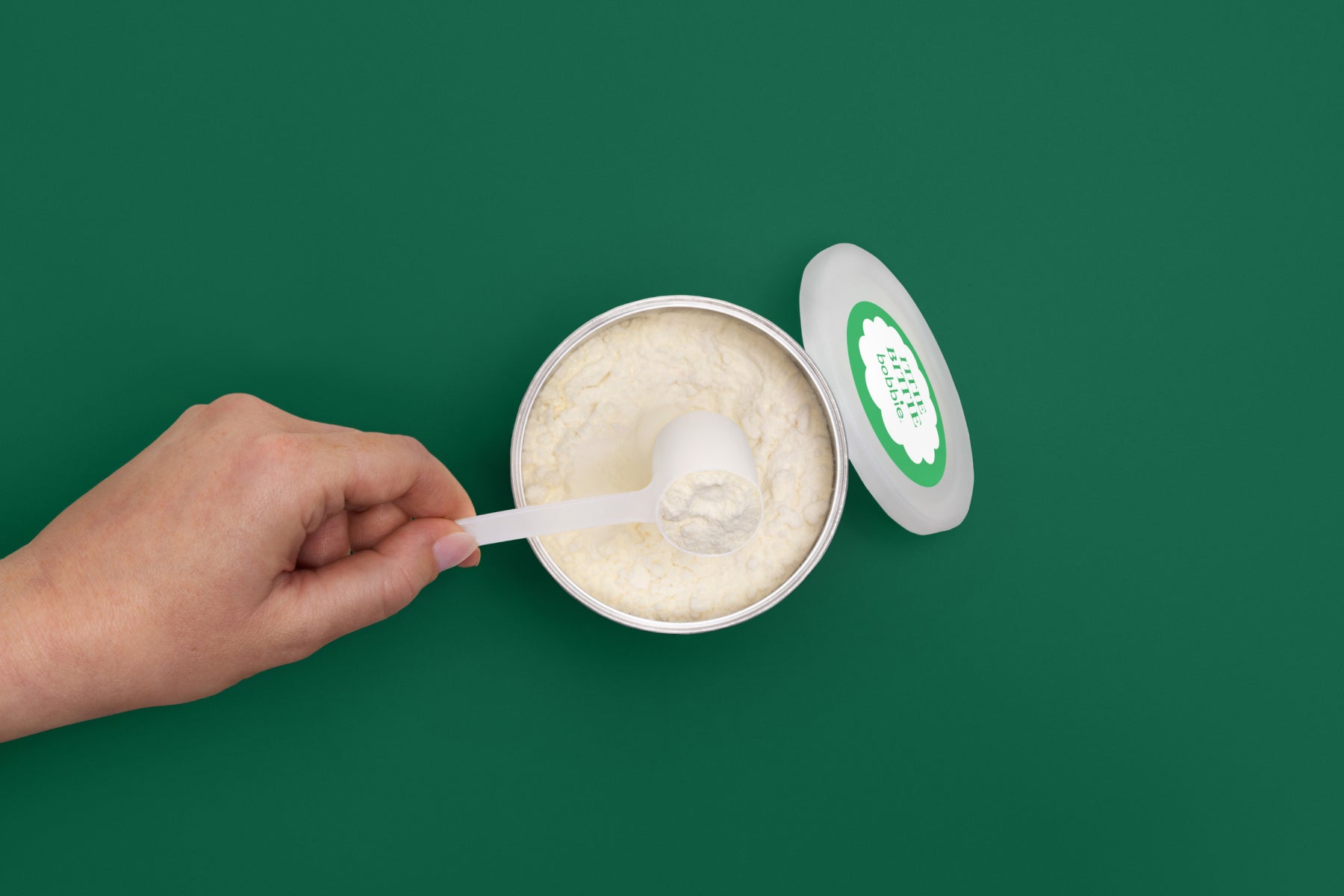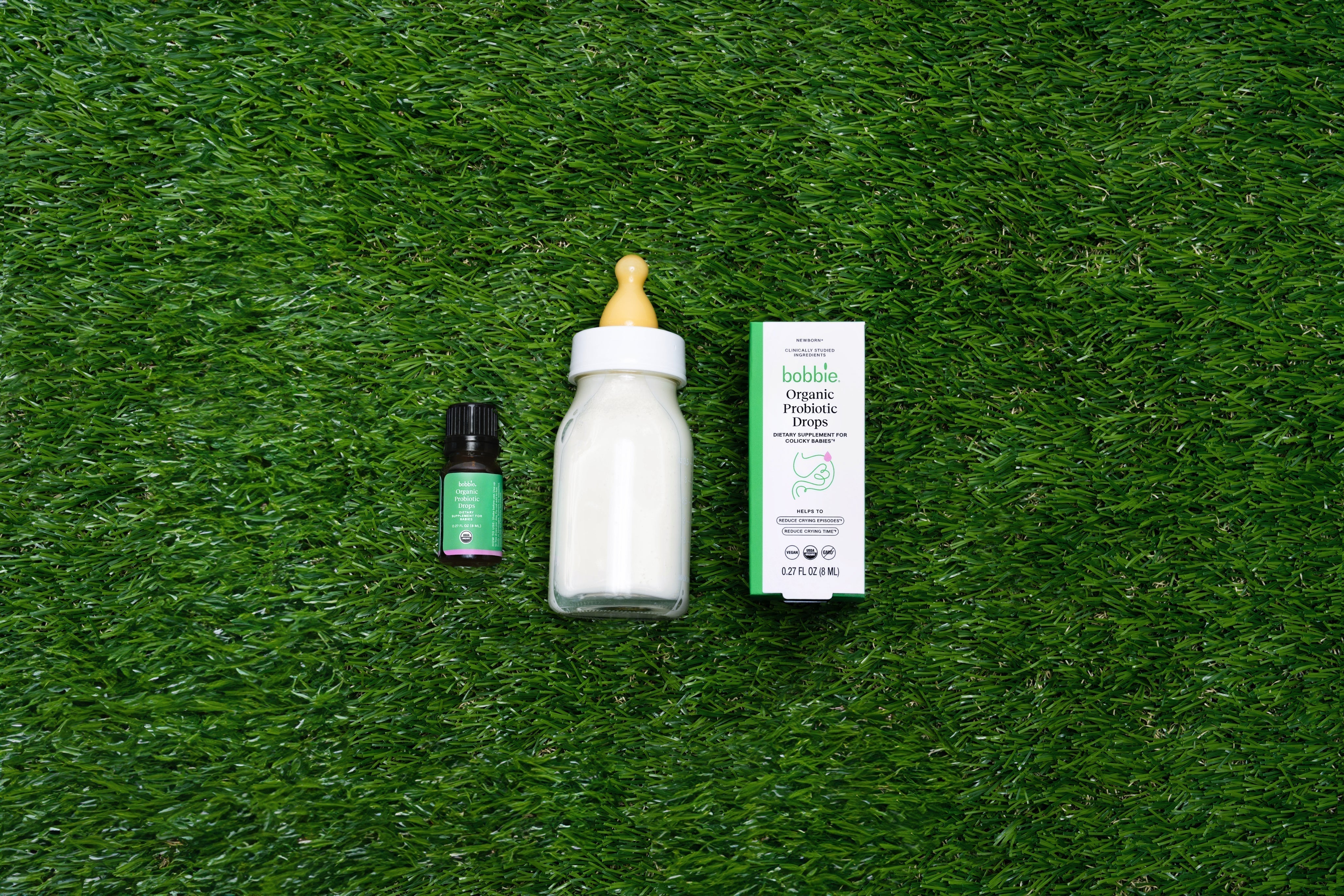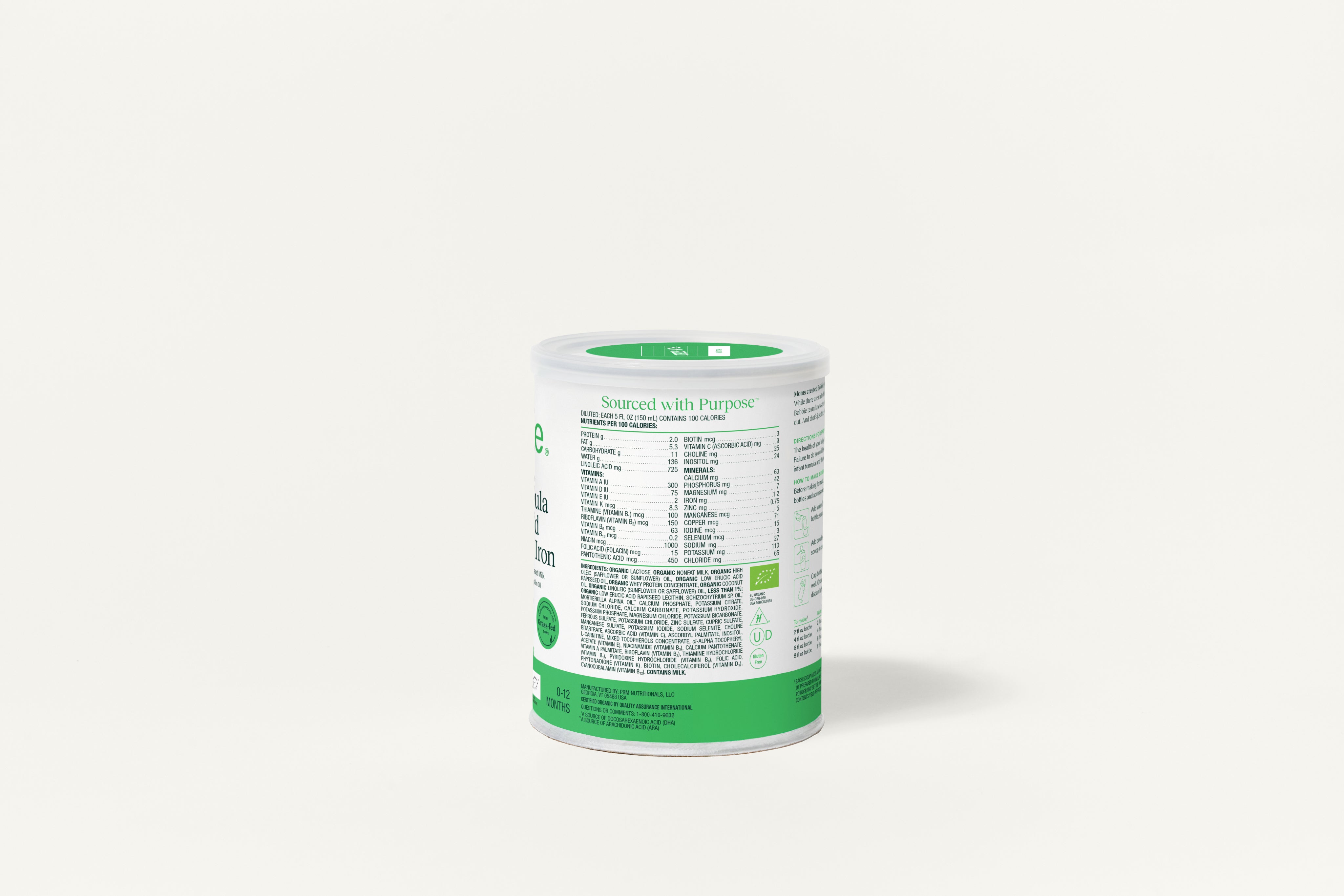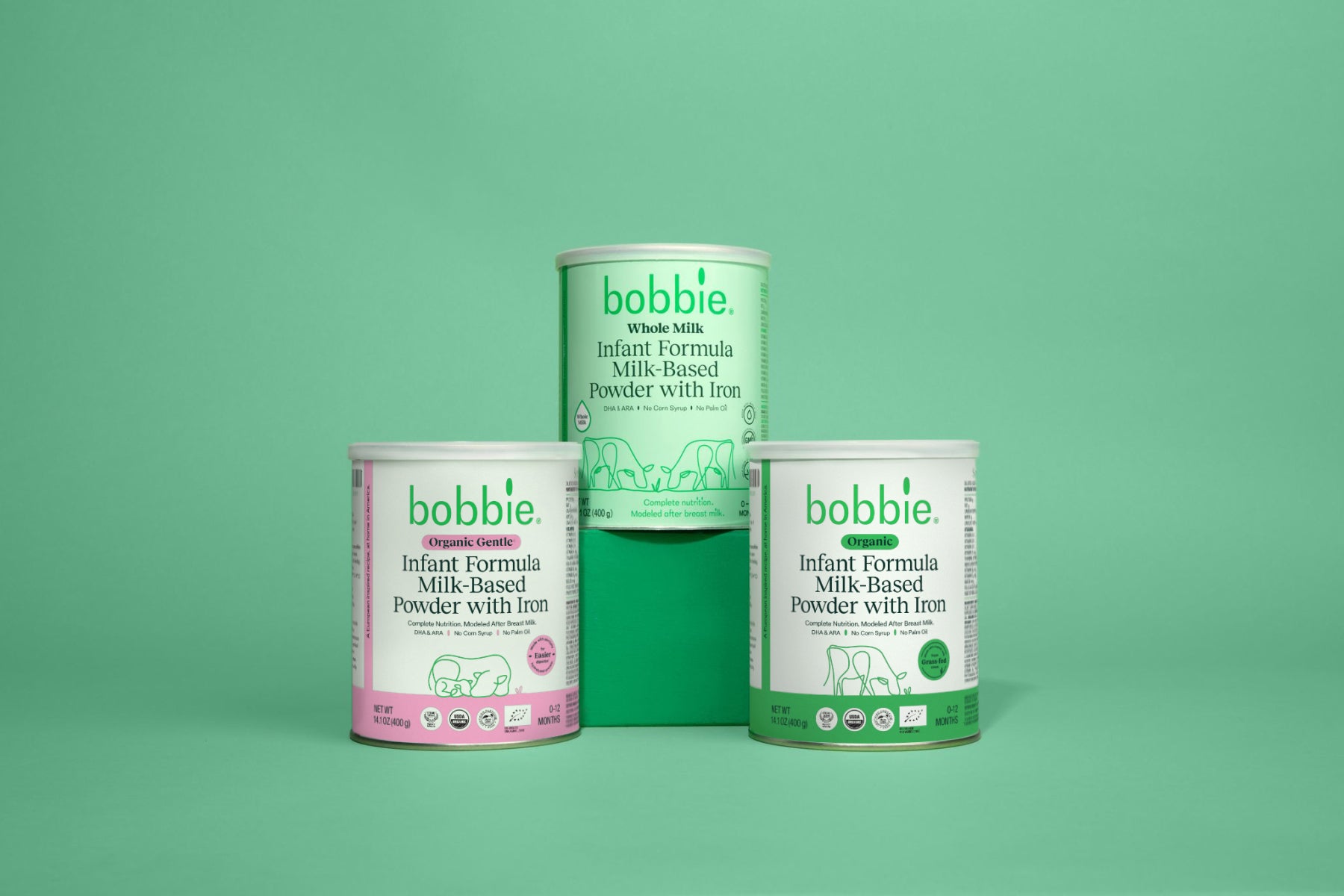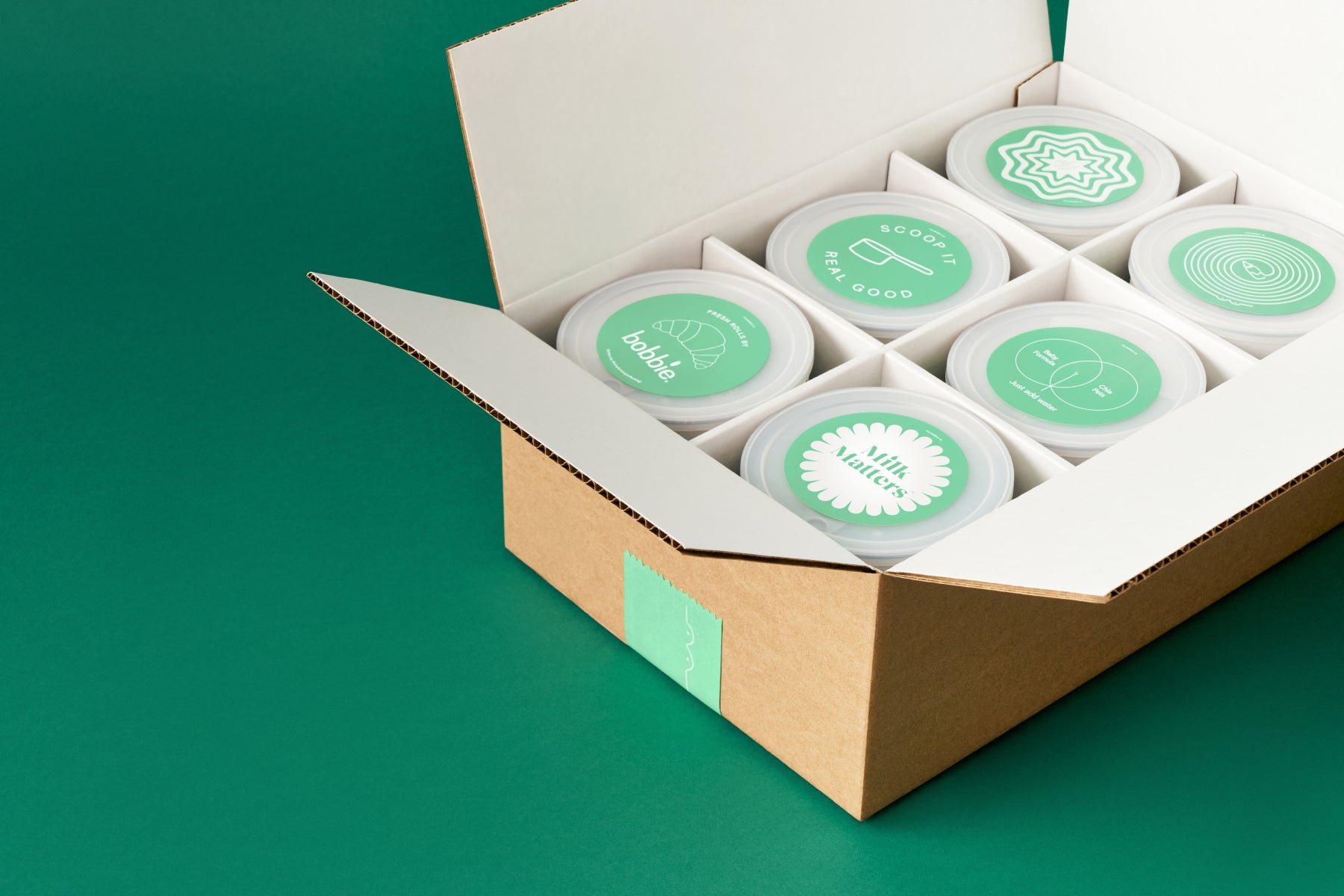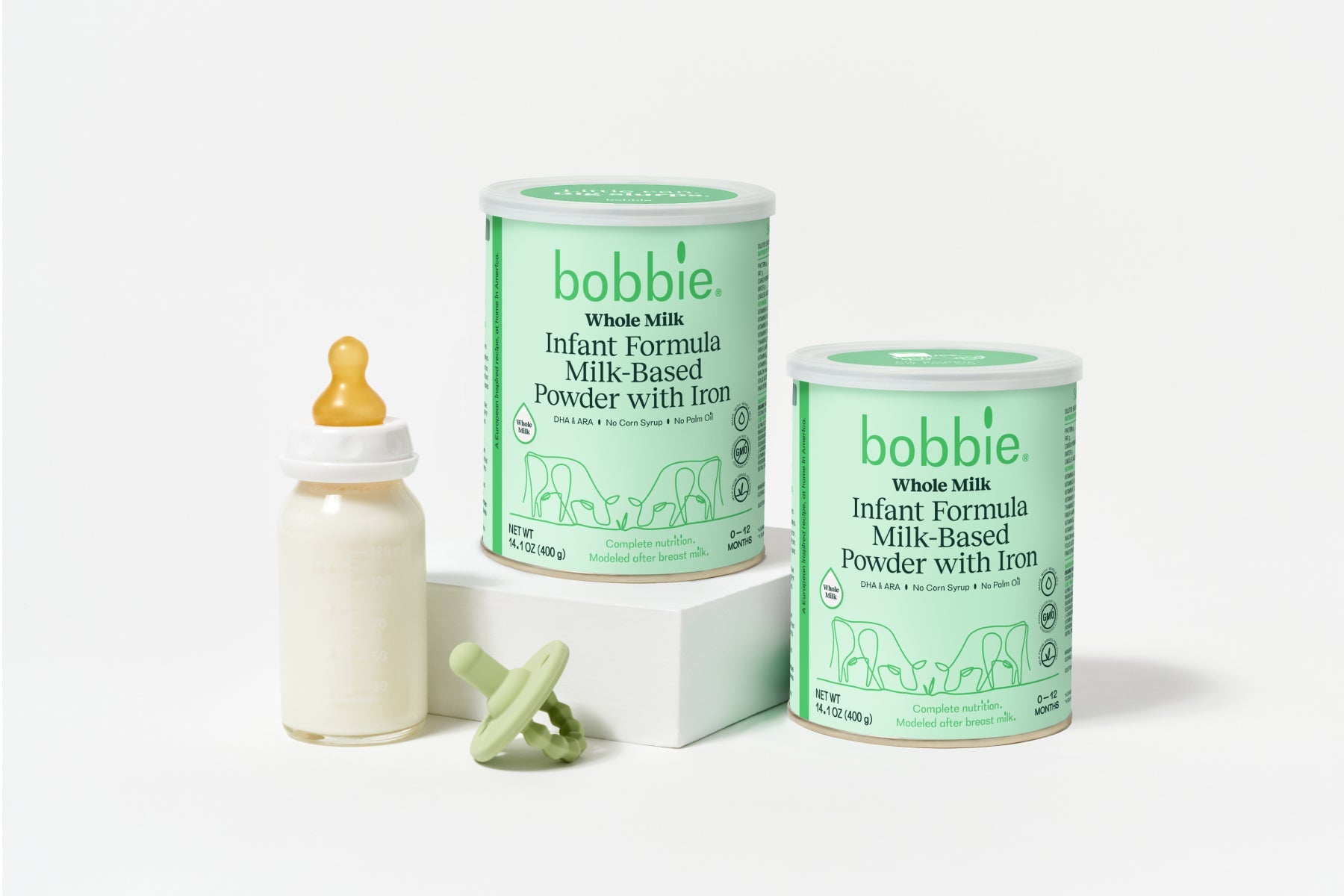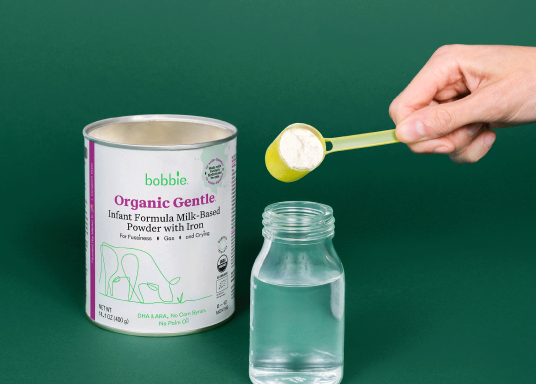Published June 12, 2025

Supplementing With Formula: A Supportive Guide for New Parents
Feeding your baby is one of the most personal (and often pressured) decisions new parents face. With so much advice out there, it’s easy to feel overwhelmed or to second-guess your choices. And if you’re considering supplementing with formula, know that you’re not alone.
Many families choose a combination of breast milk and formula to support their baby’s growth and their own well-being. The truth is, there’s no one-size-fits-all approach to feeding — what matters most is what works best for you and your baby.
We’re taking a closer look at why parents may supplement with formula and what you need to know about making the transition.
Why Parents Supplement with Formula
The American Academy of Pediatrics recommends exclusive breastfeeding for six months after birth, and ideally up to 2 years if desired by both parties. In our 2024 State of Feeding report with Willow, 80% of moms said they planned to exclusively breastfeed for up to 12 months. But real life tells a different story — while a slim majority of U.S. parents are still offering breast milk at six months, and only 25% exclusively breastfeed that long.
The truth? Feeding rarely goes exactly as planned, and that’s completely okay. You’re not alone, and there’s no one “right” way to nourish your baby.
One option parents consider is formula supplementation, or feeding your baby infant formula in addition to breast milk. It can be an occasional bottle or part of a regular routine — whatever supports your little one’s needs and your family’s well-being.
Why might parents choose the formula supplementation route?
-
Low milk supply: Despite best efforts, some parents struggle with producing enough breast milk to meet their baby’s needs. Supplementing a low supply with formula feeding can help ensure your baby gets the nutrition to grow and thrive.
-
Concerns about your baby’s weight: If a baby isn’t gaining weight as expected, a pediatrician may recommend supplemental formula to support healthy development. It can be an easy way to give your baby an extra boost.
-
Returning to work or needing flexibility: Going back to work or managing a busy schedule can make exclusive breastfeeding challenging. Supplementing gives caregivers more options, supports consistent feeding and allows others to help out.
-
Medical or pediatric advice: Sometimes, a healthcare provider may recommend formula supplementation for medical reasons, such as low blood sugar, jaundice, or latching issues. In these cases, formula can play an important role in supporting your baby’s health while working toward your feeding goals.
-
Personal preference: Every family is different, and some parents choose to supplement simply because it works best for them. Whether it’s to share feeding duties, get more sleep or reduce stress, choose what feels right for you.
If you’re ever unsure about what’s best for your baby, don’t hesitate to reach out to your pediatrician or lactation consultant for guidance. And always remember — fed is best.


Your go-to resource for all things new baby.
Sign up to get the scoop on feeding, sleep, poop, and so much more.
By singing up for email, you are to receive marketing emails from Bobbie and can manage your email preferences or unsubscribe at anytime
How (and When) To Start Supplementing With Formula
There’s no one “perfect” time to start supplementing — it depends on your baby’s needs and your feeding goals. Some parents begin in the early weeks due to low milk supply or weight gain concerns, while others introduce formula later for added flexibility. Many providers suggest waiting until a baby is at least 6 weeks old, once breastfeeding is more established.
When starting out, you can replace one breastfeeding session with a small bottle of formula — typically 1–2 ounces for newborns. Younger babies may take less at first, while older infants may need more depending on their appetite.
Combining Breast Milk With Formula
It’s safe to combine breast milk and prepared formula, whether in separate bottles or the same feeding. Just be sure to prepare and store each correctly (making note that if combining in the same bottle, parents must follow the stricter food storage timelines associated with formula). No matter your approach, remember consistency, cleanliness and comfort are key!
How To Supplement With Formula
Here are a few practical ways to incorporate formula while continuing to nurture your breastfeeding relationship:
-
Nurse first, then top off with formula: Breastfeed to start, then offer a bit of formula if your baby still seems hungry. Be aware, however, that offering your baby formula may decrease your milk supply as breast milk production works on a supply and demand model.
-
Mix breast milk and formula in one bottle: You can combine pumped milk with prepared formula in the same bottle — just follow proper prep and storage guidelines. It’s a convenient option if you don’t have enough expressed breast milk for a full feeding.
-
Try a supplemental nursing system (SNS): An SNS delivers formula through a tiny tube attached to your nipple while your baby nurses, helping to support milk supply and encourage latching.
-
Use paced bottle-feeding: Feed your baby in an upright position with the bottle level to more closely mirror the experience of breastfeeding. This supports natural feeding cues and can make switching between breast and bottle easier.
-
Try cup-feeding: Cup-feeding involves sitting your baby upright and gently tipping a small cup of breast milk or formula to their lower lip, letting them sip at their own pace. It’s especially helpful for newborns or babies who struggle with bottles.
-
Explore syringe feeding: With guidance from your provider, you can use a syringe along your finger or at your nipple to deliver formula. This helps encourage sucking skills while preserving breastfeeding habits.
Note sure where to get started with combo feeding? Check out our blog: Combo Feeding Schedule: A Comprehensive Guide to Combining Breastfeeding and Bottle Feeding
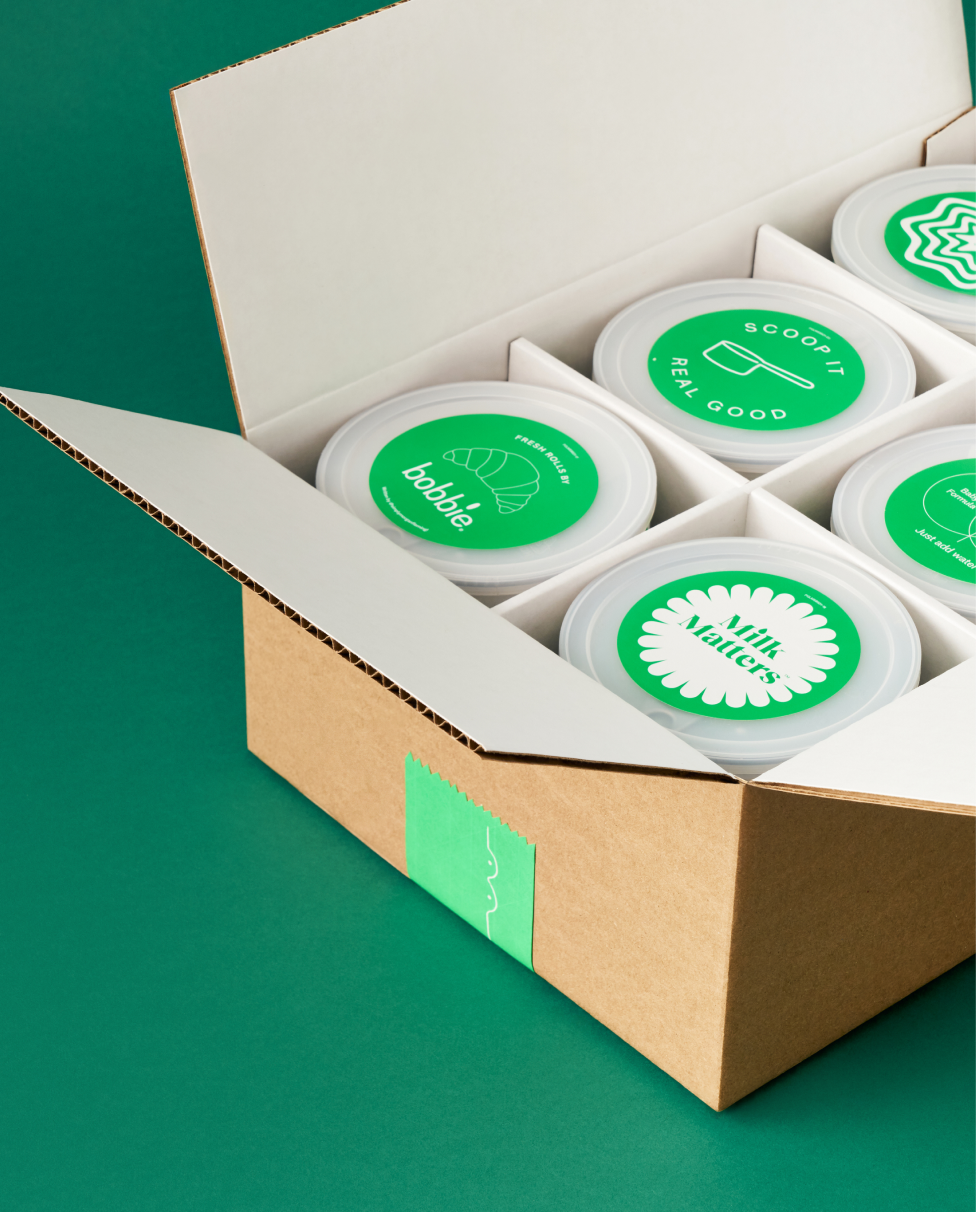
Shop Bobbie Organic Infant Formula
Bobbie Organic Infant Formula is a USDA Organic, EU-style infant formula that meets all FDA requirements. It is a complete nutrition milk-based powder modeled after breast milk and is easy on tummies. It is non-GMO and doesn't have corn syrup, palm oil, or maltodextrin. Shop Bobbie today!

Following Formula Preparation and Storage Recommendations
Here’s what you need to know about preparing and storing infant formula, according to the CDC:
Start by washing your hands and sanitizing bottles, nipples and your prep space. To prepare formula, follow the label instructions exactly — too much or too little water can impact your baby’s health. Skip the microwave; if you want to warm the bottle, run it under warm water and test it on your wrist first.
Use prepared formula within two hours of mixing — or within one hour once feeding begins. Store any unused and unoffered formula in the fridge and use it within 24 hours, and toss anything left in the bottle after feeding. Be sure to keep unopened containers in a cool, dry place, and once opened, seal tightly and use within a month. Don’t forget to check the “Use By” date before feeding!
Tips for Starting Formula Supplementation
It’s normal to wonder how supplementing with formula might impact your milk supply — and it can reduce supply if nursing or pumping happens less often. Since milk production runs on a supply-and-demand system, less milk removal can lead to a dip in supply. But with a mindful approach, combo feeding can absolutely work. Many parents successfully balance breastfeeding and formula feeding by maintaining regular nursing or pumping sessions while meeting their baby’s needs.
If you’re looking to introduce infant formula supplementation into your baby’s feeding routine, consider the following tips for a smooth transition:
-
Start gradually: Start with one formula feed per day to help your baby (and your body) adjust gradually. Watch for hunger and fullness cues to guide the pace.
-
Use the right tools: Choose slow-flow nipples and try paced bottle feeding techniques to more closely mirror the experience of feeding at the breast and support a smooth transition between breast and bottle.
-
Prep safely: Always follow formula mixing instructions carefully and store prepared bottles according to guidelines to keep feedings safe and stress-free.
-
Find your rhythm: There’s no perfect schedule — build one that works for your family. Flexibility is key, especially in the early weeks of adjustment.
-
Stay patient with bottle refusals: If your baby refuses the bottle, don’t worry. Try having another caregiver offer it, experiment with different nipple shapes or flows, or adjust the temperature.
-
Give it time: Some babies take a few tries to warm up to formula. Stay calm and consistent — it often just takes a little patience.
Supplemental Formula Feeding FAQs
Still have questions? You’re not alone. Here are some of the most common concerns parents have when starting to supplement with formula — and what you need to know:
Is there a downside to supplementing with formulas?
Supplementing is a safe and common feeding choice, but it may reduce your milk supply if you replace breastfeeding or pumping sessions with formula feedings. As long as you continue removing milk regularly (and ‘regularly’ may look different for each parent!), you will likely continue to produce milk—though not a full supply—while combo feeding.
What’s the difference between supplementing and weaning?
Supplementing means adding formula while continuing to breastfeed or pump. Weaning is the gradual process of transitioning away from breast milk entirely, whether to formula, solids or both.
Can I formula feed at night and breastfeed during the day?
Yes! Many parents choose to supplement at night for more rest or shared feeding duties. Just keep some nursing or pumping in the mix to support ongoing milk production.
Can I switch back to exclusive breastfeeding later?
In some cases, yes — especially if your baby is still nursing regularly and your supply remains active. Working with a lactation consultant can help guide you through the transition if needed.
How do I know if my baby is getting enough formula when supplementing?
Track wet diapers, growth and feeding cues. A general rule of thumb is that young babies take 1–3 ounces per formula feed, and roughly 24-32 total ounces daily, but every baby is different. Your pediatrician can help fine-tune the right amount.
What signs should I look for that my baby is reacting well — or poorly — to formula?
A well-fed baby is:
-
Content after feeding
-
Gaining weight steadily
-
Producing regular wet and dirty diapers
On the other hand, signs of sensitivity can include excess spit up, extreme fussiness, skin irritation/rash or changes in stool. Talk to your provider if you have concerns.
Find Your Feeding Balance With Confidence
Every family’s feeding journey is different — and that’s more than okay. Whether you’re nursing, pumping, formula feeding or doing a mix, what matters most is finding what works for you and your baby.
Bobbie Organic Whole Milk Infant Formula is designed to support that balance, offering a composition modeled closely after breast milk with its thoughtful fat blend, whey-to-casein ratio and lactose as the primary carbohydrate. With industry-leading DHA and Clean Label Project certification, Bobbie is a safe, organic choice trusted by parents.
Ready to supplement with confidence? Shop Bobbie today!
The content on this site is for informational purposes only and not intended to be a substitute for professional medical advice, diagnosis or treatment. Discuss any health or feeding concerns with your infant’s pediatrician. Never disregard professional medical advice or delay it based on the content on this page.



